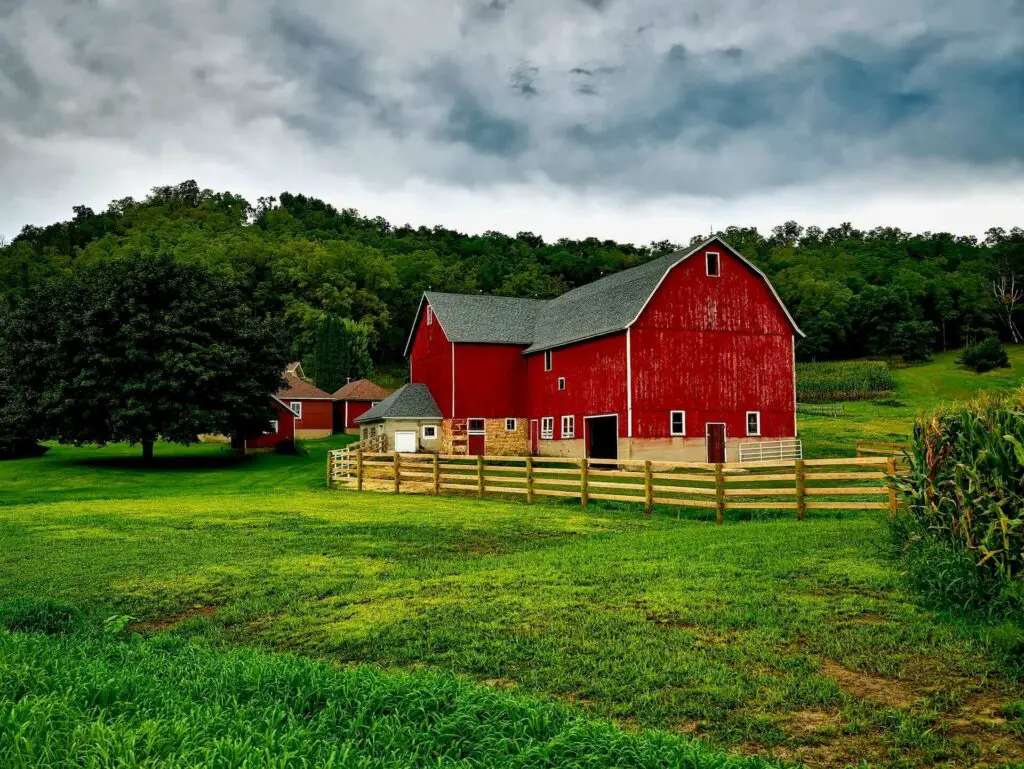Physical Address
304 North Cardinal St.
Dorchester Center, MA 02124
Physical Address
304 North Cardinal St.
Dorchester Center, MA 02124
Financing a barn can seem daunting, but with the right preparation and research, you can find financing options to suit your needs.
Yes, you can finance a barn through various options such as personal loans, home equity loans, construction loans, agricultural loans, and equipment financing. The choice depends on the scale of your project and your financial situation. Requirements typically include a good credit score, stable income, down payment, and sometimes collateral. Costs vary based on size, materials used and loan terms.
Here is a comprehensive guide to barn financing to help you understand the process.

Barn financing refers to the various loan types and lending options available to fund the construction, purchase, or renovation of an agricultural barn. Like financing a house, you can use standard loans and mortgages to finance your barn project. However, you may also have access to specialized agricultural loans offered by certain lenders.
There are several reasons you may need to utilize barn financing:
For most people, paying for these types of barn projects out of pocket is unrealistic. Using financing allows you to pay for the costs over time through a loan rather than all at once.
There are several common financing options to consider for your barn project:
A personal loan from your bank or credit union is one of the simplest ways to finance a smaller-scale barn project. Personal loans have fixed interest rates, terms of 1-7 years usually, and don’t require collateral. You will need a good credit score and stable income to qualify.
If you have sufficient equity built up in your home, a home equity loan or home equity line of credit allows you to borrow against your home’s value. The barn would serve as collateral for the loan. Home equity loans have competitive interest rates but you risk your home if you default.
Construction loans are ideal for financing new barn construction from the ground up. The lender distributes payments to the contractor in stages as the project is completed. Then the loan converts to a standard mortgage when construction is finished.
Agricultural lenders like Farm Credit banks offer specialized loan programs for farmers, ranchers, and agricultural producers. These lenders understand the unique needs of financing agricultural buildings and land.
If you only need to finance specific equipment like tractors or other farm vehicles, equipment financing uses the equipment as collateral while spreading payments over time.
The application process for barn financing will vary depending on the lender and loan type. Here are some common steps:
Having clear project plans and cost estimates will help strengthen your application. Your credit score, income, assets, and existing debt load will all be evaluated.
While specific qualifications vary between lenders, here are some typical requirements for approval:
Meeting the minimum requirements gets your foot in the door but higher scores, lower debt, and larger down payments increase your chance for loan approval.
Barn financing costs depend on several factors:
On average, expect financing costs between $10,000 to $100,000 or more for a standard barn. Interest rates range from 3-7% typically. Your monthly payments will be determined by the loan amount, interest rate, and loan repayment term agreed upon with the lender.
| Loan Type | Pros | Cons |
|---|---|---|
| Personal Loan | Easy to qualify, fixed rates and terms | Large projects may exceed limits |
| Home Equity Loan | Competitive rates, accessible funds | Risk losing home if default |
| Construction Loan | Funds released in stages | Complex process, higher rates |
| Agricultural Loan | Specialized financing, lower rates | Only for established farms |
| Equipment Financing | Use equipment as collateral | Limited to equipment only |
Evaluate the unique pros and cons when choosing your barn financing strategy.
The best barn financing option depends on your specific situation. Here are some tips:
By researching your options, assessing your financials, and comparing lenders, you can find the ideal financing solution for bringing your barn plans to life.
Barn construction costs range dramatically based on size, materials, purpose, and other factors. Typical price ranges include:
Labor, foundation, electrical, plumbing, and other additions will also affect the final cost. Assess your needs and get quotes from multiple contractors.
Yes, a standard mortgage can be used to finance a barn in many cases. If zoned for residential use, you may be able to get a traditional home mortgage. Other options include a commercial mortgage or agricultural land loan for farms. Work with lenders experienced in barn financing to find the right mortgage loan for your needs.
Some government grants are available to agricultural producers and rural small businesses that could potentially help offset the costs of certain barn projects, but won’t fully finance construction. Options to look into include USDA Rural Development grants and Small Business Administration loans. These can supplement your financing but aren’t a standalone option.
By understanding the different options for barn financing, assessing your financial situation, choosing the right lender, and submitting a strong application, you can make your dream barn a reality. With persistence and thoughtful planning, you can secure financing for your perfect barn project.